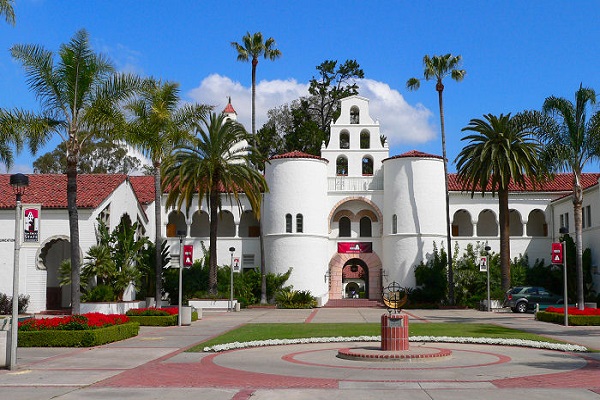San Diego State University: $5 Million Award Will Establish Imperial County Clinical Research Network to Tackle Health Disparities
San Diego State University, SDSU Imperial Valley and El Centro Regional Medical Center (ECRMC) have received a $5 million cooperative agreement award from an arm of the National Institutes of Health (NIH) to tackle health inequities in the region. Over five years, the funds will help to establish the Imperial County Clinical Research Network (ICCRN), a partnership between the SDSU HealthLINK Center, SDSU IV (RISE) Center, and ECRMC.
SDSU professor of public health Guadalupe X. Ayala, SDSU assistant professor and associate director of nursing Helina Hoyt and chief clinical officer of ECRMC Suzanne Martinez are the principal investigators.
The ICCRN will develop an infrastructure of personnel, policies and procedures to build science-informed clinical research capacity at ECRMC. The medical center serves a rural, agricultural community near the U.S.-Mexico border, which has different public health needs than more urban areas like San Diego.
“This is a very fluid border community, and it has been battling persistent poverty. Median household income is lower compared to other areas of the state,” said Hoyt. “There has been a lower educational attainment and we have a shortage of healthcare providers. We had these problems before, but COVID really magnified them. And I think that’s why, especially right now, we often have a higher burden of disease.”
The 2022-24 phase of the award from NIH’s National Institute on Minority Health and Health Disparities (NIMHD) will establish the ICCRN and create patient, clinician and community advisory committees to guide research priorities, as well as identify the infrastructure needed to launch two pilot projects.
The goal of the first pilot project is to study the benefits of promoting breastfeeding and prenatal care among families to prevent childhood obesity, which is prevalent in Imperial Valley, according to Adolphe Edward, chief executive officer of ECRMC. The program will support lactation efforts in postpartum mothers and their families, and “ultimately improve the health and nutrition of our newborns and children,” he added.
The project was chosen because of a previously identified public health need to address low rates of breastfeeding in the Valley. The second pilot project will be selected via a competitive process. Hoyt says the two projects will yield lessons that could improve best practices.
“We want to be able to continuously look at what’s working, what we need to adjust, and then be able to establish these teams and systems to support what we’re learning,” said Hoyt. “During this first phase, we hope to generate lessons on how to rapidly share results among local, regional, national and cross-border partners. Our goal is to identify relevant, feasible, sustainable and potentially translatable approaches to promote health and wellbeing in other communities like ours. What we’re learning will be able to quickly change policy and practice.”
The second phase of the award, for 2024-27, will further refine the ICCRN infrastructure needed to support clinical research, evaluate implementation of the pilot projects, and develop systems to equitably share data between researchers and partners. Protocols developed locally will be shared with a second network site affiliated with the Research Centers at Minority Institutions Research Translation Network and a Coordinating Center.
“Ultimately, our goal is to inform the development of research protocols that are relevant to organizations in rural, border communities,” said Ayala. She added, “Organizations functioning in low-resource communities need research protocols that consider that context.”
SDSU Imperial Valley and SDSU students will have the opportunity to become involved throughout the duration of the cooperative agreement. Registered nurses pursuing a bachelor’s degree in nursing, and graduate students working towards a master’s degree or doctorate in public health will attend research council meetings and develop presentations and manuscripts on the efforts for local leaders. B.S. in nursing students will also attend meetings and work on projects. Those completing an M.S. in nursing leadership will have the option to incorporate clinical time within ECRMC to complete evidence-based research projects. The students will be encouraged to serve the community after graduation.
“This is a unique opportunity and I appreciate NIMHD’s approach to helping us build the infrastructure for research at SDSU, and now, more formally, SDSU Imperial Valley,” said Ayala. “But even more importantly, through the Lactation Support Program, we hope to find ways of helping families in Imperial County have the best start possible.
“I think the main thing that we’re thrilled about is we have a shared vision,” said Hoyt. It truly is a community-clinical-academic partnership if there ever was one along the rural border area of Imperial County.”

